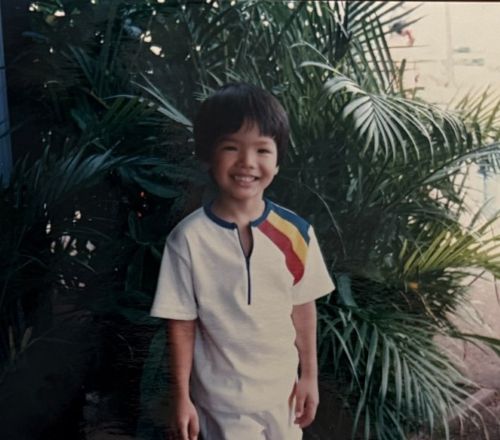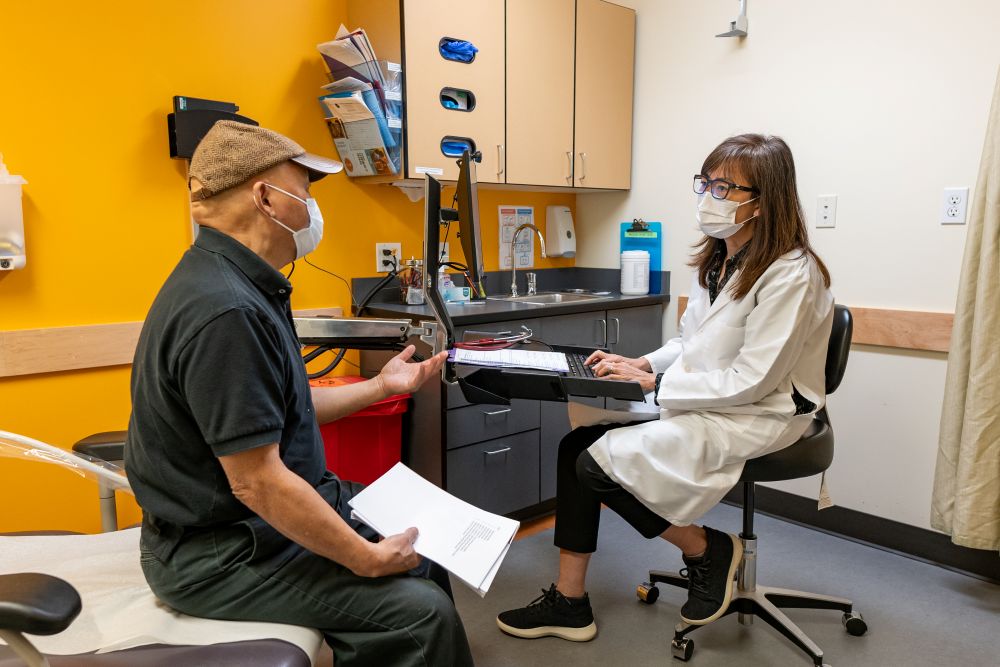This op-ed by Nate Caminos with Plymouth Housing and International Community Health Services (ICHS) is also published at NW Asian Weekly.
May is Asian American, Native Hawaiian, and Pacific Islander (AANHPI) Heritage Month — a time to celebrate the rich cultures, contributions, and stories that shape our communities. But honoring AANHPI Month means more than celebration. It also means confronting the realities that continue to hold some of us back.
One of the most meaningful ways we can uplift our communities is by making sure all of us have what we need to thrive: the healthcare to stay well, the housing to stay safe, and the visibility to be seen — not just in moments of triumph, but in times of struggle, too.
In 1988, my mother left an abusive marriage and moved my sister and me from Hawai‘i to Kent, Washington. She worked two jobs, and we lived on canned food and rice. I grew up in an apartment complex surrounded by families like ours—doing their best, but constantly on the edge. I saw kids hurt by violence in their homes, friends going hungry, and neighbors who disappeared overnight when rent became impossible.

Nate Caminos as a child
Even basic healthcare was a luxury. I remember injuring my hand during a bowling league game, but we couldn’t afford urgent care. I toughed it out through the weekend in pain. Eventually, a school nurse stepped in and helped—off the record. That experience wasn’t unique. Dental care was out of reach. Mental healthcare wasn’t even discussed. It took years and the support of extended family to access therapy for the trauma I carried from childhood.
In the summers, I’d return to Hawai‘i to stay with my aunt and uncle—my “Hawai‘i parents.” Their fridge was full. I attended classes at Punahou School, President Obama’s alma mater. I was the same kid, but in a different ZIP code, I lived a different life. That early contrast taught me that success isn’t just about effort. It’s about access—to housing, healthcare, safety, and stability.
Too often, AANHPI communities are painted with a single brushstroke: the “model minority.” But success stories are only part of the truth. This myth erases the diversity of our experiences and hides the very real struggles so many face. Poverty, homelessness, and health inequities are not someone else’s problem—they are ours, too.
The danger of the model minority myth is in its oversimplification. Disaggregated data shows vast disparities across AANHPI groups. While some subpopulations have higher median incomes, others—such as Burmese, Hmong, Native Hawaiians, and Pacific Islanders—experience poverty at double the national rate. Southeast Asian Americans are significantly more likely to face housing instability than aggregate statistics suggest. When our stories and data are lumped together, these gaps are erased, making it harder to secure needed resources and policies.

Dr. Ann Lu (right) meets with a patient at ICHS’ Bellevue Medical & Dental Clinic. Courtesy of ICHS
At International Community Health Services (ICHS), we see how health outcomes are shaped not just by medicine, but by housing, food, and economic stability—the community conditions impacting health. For many AANHPI patients, especially recent immigrants and refugees, language barriers, underinsurance, and stigma make accessing care incredibly difficult. Behavioral health and dental services—critical to overall wellbeing—are often underused because of cost, fear, or lack of information. These aren’t individual failures. They’re systemic barriers that require collective solutions.
At Plymouth Housing, we serve residents who reflect the full spectrum of life experience. Many are People of Color, including AANHPI community members. Some are college-educated. Some served in the military. Others worked in business, social services, or tech before experiencing homelessness. They don’t fit stereotypes—which is exactly the point. The “model minority” myth narrows who we think struggles and who’s allowed to ask for help.
In many cultures, conversations about poverty, mental health, or hardship are taboo — seen as shameful or private. But when we keep our stories in the shadows, we also keep our needs invisible. Silence doesn’t protect us; it isolates us. It’s time for our community to look homelessness and poverty in the face and say: this is about us. When we ignore the most vulnerable, we lose our collective strength.
This AANHPI Heritage Month, let’s commit to telling our full story. Let’s celebrate not how far we’ve come, but ensure no one is left behind. Let’s be a community where all of us can access care, find shelter, and be seen for who we really are.
We can build a future where no one in our community is invisible. It starts by seeing one another clearly—free from myth, and full of humanity.
Nate Caminos is a community advocate and policy strategist who currently directs government relations at the Port of Seattle.
Plymouth Housing is a nonprofit organization that provides permanent supportive housing for people who have experienced chronic homelessness in King County.
International Community Health Services provides culturally appropriate medical, dental, behavioral health, and pharmacy services to immigrant and refugee communities in Washington state.